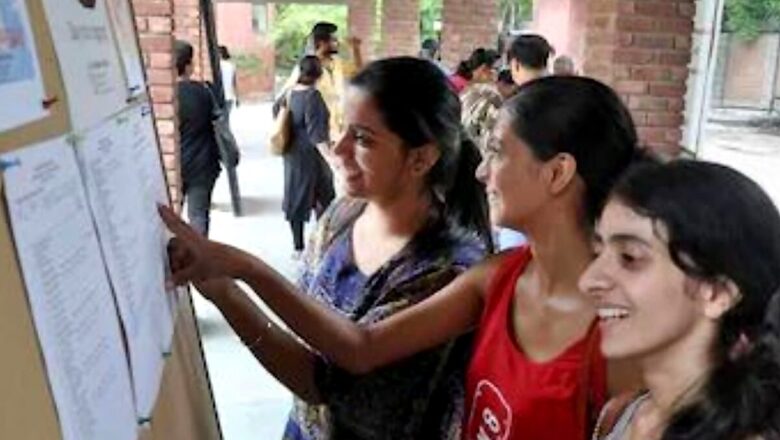120 Hrs of Internship Must After 4th Semester, 360 Hrs for Those with Honours (Research) Degree: UGC

views
An internship of a duration of 60 to 120 hours after the fourth semester, and 360 hours for those pursuing an honours with research programme will be mandatory for students enrolled in undergraduate (UG) degree programmes across recognised institutions in the country, as per the draft guidelines released by the University Grants Commission (UGC) on Wednesday.
The UGC had last year announced that students enrolled in UG programmes will compulsorily have to do research internships. The move is in line with the new National Education Policy (NEP) 2020 that envisages research and innovation as its two inherently important aspects.
According to the new rules, the undergraduate internships will be classified into two — internship for enhancing employability and internship for developing research aptitude.
“A minimum of 2-4 credits, out of the required minimum 120/160 credits, of a 3-year UG degree/4-year UG degree (Honours)/4-year UG degree (Honours with Research) can be assigned for internship as per the National Higher Education Qualifications Framework (NHEQF) and Curriculum and Credit Framework for Undergraduate Programme (CCFUP). An internship of 60 to 120 hours’ duration after the 4th semester will be mandatory for the students enrolled in UG degree programmes,” the draft read.
According to the new guidelines, one credit of internship means two-hour engagement per week. Accordingly, in a semester of 15 weeks, one credit in this course is equivalent to 30 hours of engagement in a semester.
Similarly, for the 4-year UG degree programme (Honours with Research), engagement of students in the dissertations/research project during the entire eighth semester of 12 credits will be considered as a mandatory component for the award of the degree, it said.
“The students need to essentially submit the research project/ dissertations / thesis / project work to the allotted mentor. The research work should involve 360 hours’ duration during the 8th semester,” the draft stated.
The guidelines make it clear that the three-year UG degree, four-year UG degree (Honours) and 4-year degree (honours with research) programme will be operating strictly adhering to NEP-2020, NHEQF and CCFUP provisions.
According to the new UG internship rules, each undergraduate student will have to complete an internship of 2-4 credits during after the 4th semester of the UG degree programme focussing on Hands-on Training/Short Research Project. However, the student who has to go for a 4-year UG degree (Honours with Research) programme will be required to choose courses (from a set of courses) during the 8th semester.
Internships include working with government or private organisations, higher education institutions, universities, research and development labs/research organisations/non-government organisations, enterprises, centres involved in research, innovativeness and entrepreneurship, business organisations, local industry, artists, craftspeople, and similar other entities for providing opportunities to students “for active engagement in on-site experiential learning,” it said.
The higher education regulator also said the HEIs should develop a roadmap for the smooth functioning of — the internship programme under the Research and Development Cell at the institutions; the office of the nodal officer; internship portals and about roles and responsibilities of interns, supervisors and mentors; and a list of projects, among others.
“Internship outcomes should have been incorporated in developing a perspective among the candidates or students towards a profession and their ability to deconstruct a job role and to become job-ready as soon as they enter into a job or a profession,” the draft said.
The new education policy places a major thrust on employability of students once they graduate from an institution. This is mainly on account of high unemployment rate as well as low employability of young graduates in the country.
The India Skill Report (ISR), 2022 highlights that youth employability has improved to 46.2 % in 2021 from 45.97% till 2020. Interestingly, 51.44% employability of females were observed compared to 45.97% of males for 2021-22.
In 2023, undergraduates in commerce got the highest employability rating at about 60.62%. The report further mentioned that 88.6% of graduates are looking for internship opportunities.
“In 2022, 88.42% of respondents in the report have given preference to an internship for gaining experience. It was also recorded that 2022 was also the year to mark the highest demand for internships since 2016. It is also observed that in India employers like to hire employees having at least a year of working experience,” the ISR- 2022 report stated.

















Comments
0 comment